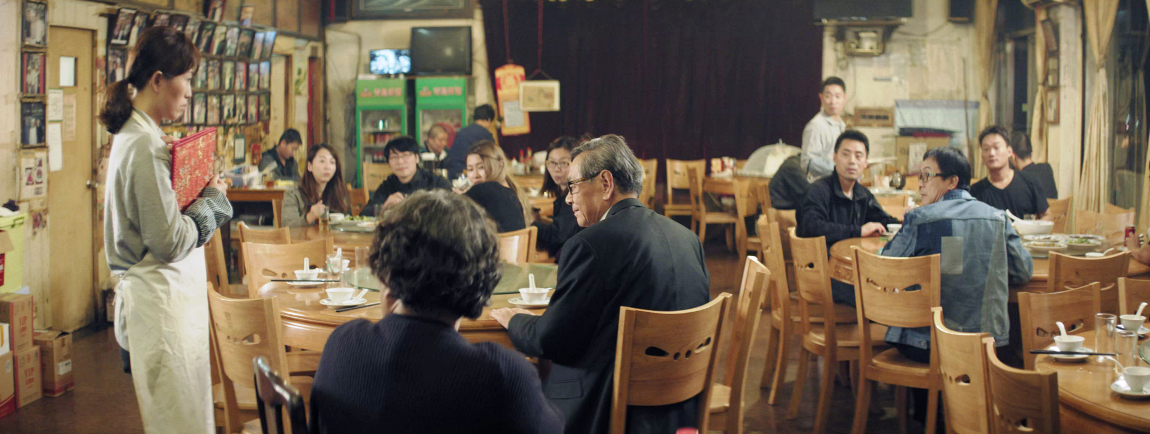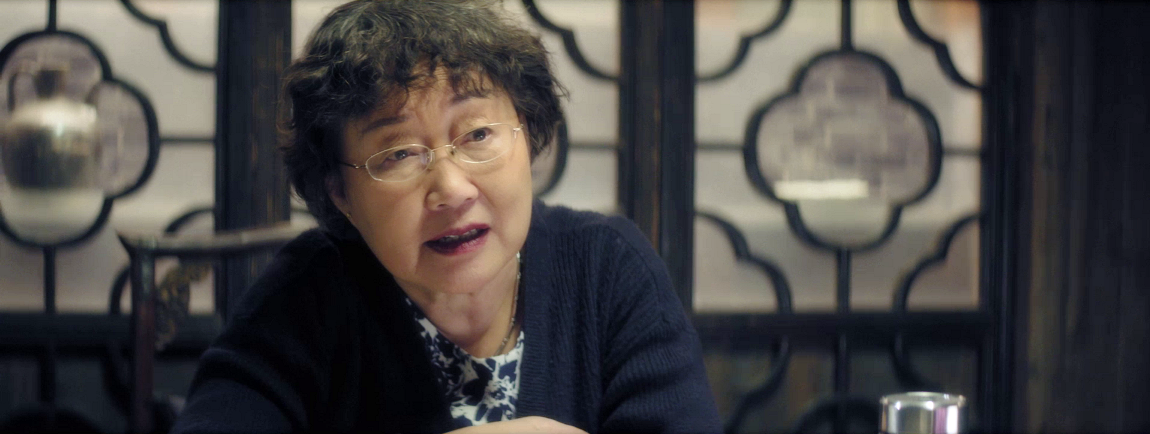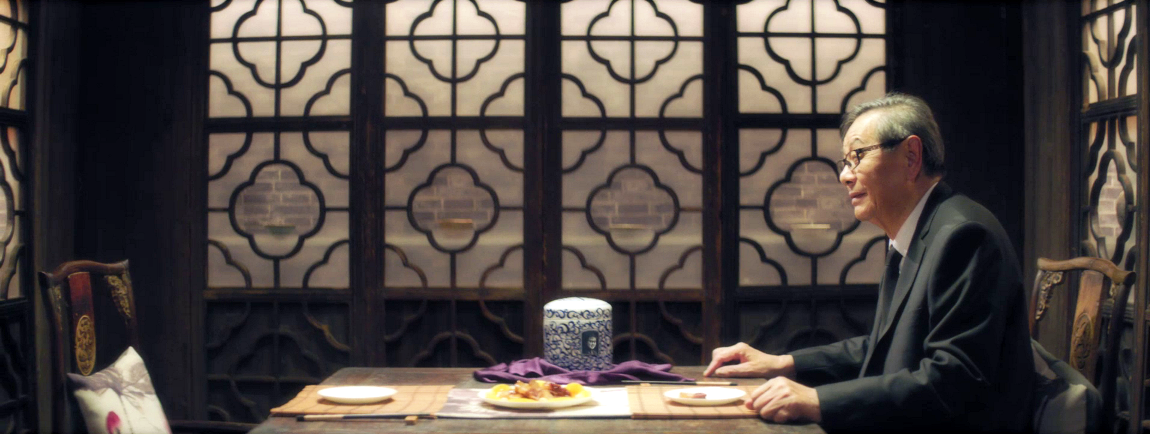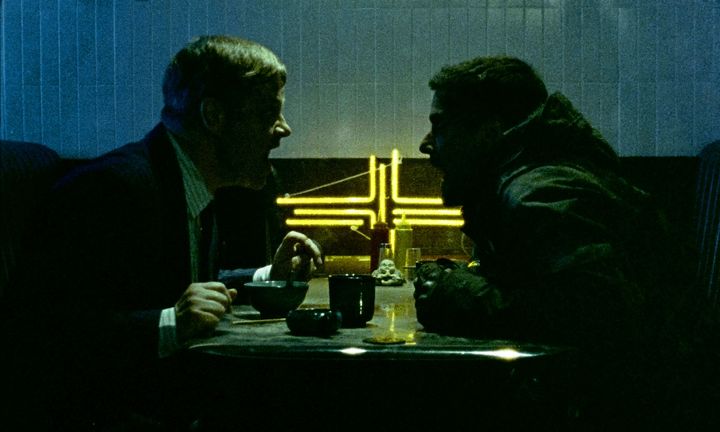Following the death of his wife, an elderly widower goes in search of a special taste from his youth in the Chinese-language short, Bittersweet. Director Jeffrey Chu talks about his early fascination with movies, the Shanghai film collective he helped start, and the making of his latest project.
Bittersweet tells the story of an elderly man (played by Wang Shichong) who—following the funeral of his recently deceased wife—sets off on a late-night journey through the streets of Shanghai in search of a culinary delicacy known as huo fang. When his wife (played by Zhang Zhenzhen) appears to him in the form of a spirit and attempts to discourage him, it becomes clear his quest is about more than simply tasting an elusive dish.
Inspired in part by the passing of his father in 2011, writer-director Jeffrey Chu uses the film to explore questions of marriage, sacrifice, and our ability to transcend loss.
“It takes a lot of time and energy to tell a story and to make a movie. So, I think it’s only fair to ask that the message in the story has some sort of personal connection,” Chu says. “Otherwise it could be a very lonely journey making it.”
Born in Taipei and raised in California, Chu’s background and experience began to shape his interest in storytelling—as well as his future as a filmmaker—from a very young age.
“I watched a lot of films when I was growing up. All kinds, different authors, genres, origins, cult, and experimental,” he recalls. “I think it’s a phase most filmmakers share—an excitement of discovering films and the possibility of cinema.”

Subsequently, Chu followed up on his fascination with movies by studying the technical aspects of filmmaking and, ultimately, by writing and directing his own films.
“[As I got older,] I also started making 16mm films. Because of the cost of the media, I learned to be precise and efficient on productions. It was critical to know what you wanted and to have a plan to execute it. That experience certainly encouraged me to be a filmmaker with sound fundamental skills.”
Despite his Taiwanese roots, Chu only visited Mainland China for the first time in 2005. More than a decade later, he still marvels at both the passage of time and the changes that have taken place here.
"We try to provide a safe community where one can be open, be curious, and be collaborative in sharing his or her thoughts and ideas with others."
“Probably no other city in the world has developed as rapidly as Shanghai in the last ten years. For entrepreneurs and creative people, Shanghai is very permissive,” he observes. “As a cinematographer and a filmmaker, I’ve had quite a lot of opportunities to exercise and polish my skills here. I value every opportunity I’ve been given to make films.”
In addition, Chu’s time in Shanghai also led to his involvement with Creative Farm—a group he helped form along with Shanghai International Short Film Contest organizer Richard Trombly. As Chu explains, it all started with a simple mandate to create a space where filmmakers could come together, workshop their ideas, and collaborate on various projects.
“We don’t judge what people are trying to make,” he says. “Instead, we try to provide a safe community where one can be open, be curious, and be collaborative in sharing his or her thoughts and ideas with others.”

Intended as part of a larger series of stories about modern life in the city, Bittersweet is the first completed project to emerge from the collective efforts of the group.
“A few of us at Creative Farm were eager to get busy and make something between projects. We needed to time the production so everyone could get involved,” Chu says. “[Screenwriter] Jude Jiang and I, we saw an opportunity to write something personal, intimate and original. We knew that we had to keep the production to a certain scale—close to no budget, if that’s possible.”
At the heart of the film they decided to make is the story of an elderly widower who sets off in search of a late-night snack known as huo fang—a savory pork dish coated in honey.
"We saw an opportunity to write something personal, intimate and original."
“I knew I wanted the husband to ask for something humble and something which supposedly could be easily satisfied,” Chu states. “Huo fang seemed to fit all the criteria. It’s a southern dish, popular in Shanghai, Suzhou, and Zhejiang province—though not all restaurants make it. Because the dish is usually very fatty, that also gave his wife an excuse to nag him.”
As Chu explains, the dish also takes on a special symbolic meaning in the context of the relationship between the man and his wife.
“In Chinese the two characters of huo fang literally mean ‘fire’ and ‘square’. It doesn’t give a straight impression to link the name of huo fang to a dish—rather it becomes of a collective memory of the two.”

Despite the universal nature of grief, loss, and regret expressed in the film, the director also set out to play off of some uniquely Chinese—and, in some respects, uniquely Shanghainese—aspects of the characters’ relationships.
“Men in the southern part of China are generally more attentive to their wives and do family chores,” he notes. “A sense of duty, obligation, or even guilt is a common theme many carry around with them and base their decisions on. In this respect, in Bittersweet, the husband’s determination to be alone and only follow his own will is actually out of the norm.”
In addition, the nature of the story Chu wanted to tell—about an elderly man and his recently deceased wife—presented some unique challenges when it came to casting the right actors for the main roles.
"It was hard to find an actress for the part of the wife because whoever took on the role was basically going to play a dead person—a ghost—something that could be considered taboo."
“It was hard to find an actress for the part of the wife because whoever took on the role was basically going to play a dead person—a ghost—something that could be considered taboo and very unpleasant if one is superstitious.”
Nevertheless, he was finally able to find a match for the role of the wife when his casting director introduced him to actress Zhang Zhenzhen.
“Mrs. Zhang was very supportive after I explained to her how I wanted to photograph her and what the story meant to me personally,” Chu says. “She not only helped me with her lines in Shanghainese, but she also recommended Mr. Wang to play her husband.”

With most of the production taking place at night—including at least one shoot which didn’t wrap until 2AM—Chu further emphasizes not only the quality of the on-screen performances, but the level of professionalism both leads brought to the project.
“Mr. Wang is over eighty years old and yet he was so energetic and dedicated to this project,” he adds. “I met with him several times to go over the script. His good spirit always encouraged me. He was understanding and didn’t have any complaints.”
In addition to having the pleasure of working with a wonderful cast and crew, the project has also allowed Chu to continue to refine his skills as a filmmaker.
"Filmmaking is such a self-discovery exercise that I know I have to be more precise about what I want and how to execute it."
“I have had a better idea of what I need to do to improve on as a storyteller and a director. Filmmaking is such a self-discovery exercise that I know I have to be more precise about what I want and how to execute it.”
And, now that the project has been completed, Chu has turned his attention to the process of submitting the film to numerous festivals around the world. The shift in focus has also given him time to reflect on what audiences will experience in seeing the film.
“Honestly, I really don’t have any expectations. I hope people do get a chance to see it preferably in a proper setting, of course,” he admits. “People can take away whatever they want from it. Seriously, I am curious to know what people think of it."



